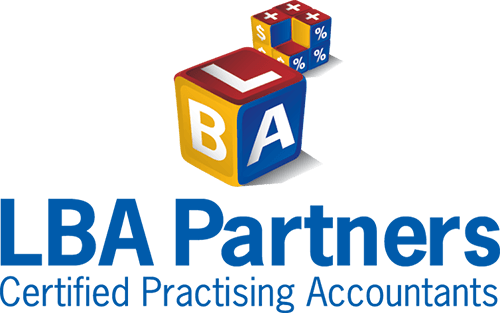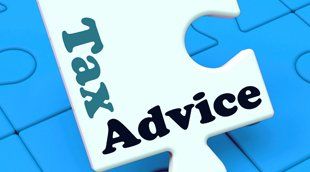P r a c t i c e U p d a t e
July 2013
ATO warns investors about tax avoidance schemes
The ATO's Commissioner, Chris Jordan, has warned investors about new and complex tax avoidance schemes being marketed as people get ready to lodge their 2013 tax returns, saying: "Tax avoidance schemes are no longer the blatant too-good-to-be-true offers seen in the past."
Many modern tax avoidance schemes are complex structures that are difficult for even experienced investors to identify, and many are marketed via social media or glossy promotional brochures, with offers of exclusivity and the stamp of approval from so-called experts.
In one case, promoters offered an arrangement for people to purchase "emissions" units generated through offshore carbon reduction activities (the scheme involved offshore arrangements with people claiming more than they paid).
"If you are getting back more money than you put in with no risk, and if no real goods or services are being provided, it is likely to be a tax avoidance scheme and could lead to significant tax penalties".
GIC and SIC rates for September 2013 quarter
For the September 2013 quarter, the GIC (General Interest Charge) rate is 9.82% (0.02690411% daily compounding rate). The SIC (Shortfall Interest Charge) rate is 5.82% (0.01594520% daily compounding rate).
Medicare Levy increase becomes law
The DisabilityCare Australia legislation that provides for a half a percentage point increase in the Medicare levy has passed the Parliament and become law.
The legislation will increase the Medicare levy from 1.5% to 2% of taxable income from 1 July 2014.
Editor: This will have a flow-on effect to other tax rates than implicitly incorporate the Medicare levy, such as FBT, the family trust distribution tax rate and the excess non-concessional contributions tax rate, all of which increase to 47% from 1 July 2014.
ATO's new 'Trusts Taskforce'
The ATO's recent compliance operations have uncovered evidence of increased manipulation of trusts as vehicles that can be at the centre of tax avoidance or evasion arrangements.
The ATO will target those people that exploit trusts to conceal information, mischaracterise transactions, and artificially deal with trust income to avoid or reduce tax.
Which trusts will be looked at?
The Trusts Taskforce is intended to target higher risk taxpayers and is not targeting ordinary trust arrangements and tax planning associated with genuine business or family dealings.
They will undertake compliance activity to target known tax scheme promoters, individuals and businesses who participate in such arrangements.
In the most serious cases, criminal sanctions will be pursued in collaboration with law enforcement authorities (e.g., through Project Wickenby and collaboration with overseas authorities).
Super funds keep pension exemption after death
The government has made amendments to "provide tax certainty for deceased estates in situations where a person has died while in receipt of a superannuation income stream".
Broadly, a superannuation fund is entitled to a tax exemption for income that supports the payment of superannuation income stream benefits (i.e., superannuation pensions).
Under the amendments, where a complying superannuation fund member was receiving a superannuation income stream immediately before their death, the superannuation fund will continue to be entitled to the earnings tax exemption in the period from the member's death until their benefits are cashed:
- by paying them out as a lump sum; and/or
- by commencing a new superannuation income stream;
subject to the benefits being cashed as soon as practicable.
The level of the exemption would be no greater than it was before the member's death (allowing for investment earnings after the member's death).
Simpler depreciation rules for business
The ATO has reminded small businesses with turnover of less than $2 million (i.e., small business entities or 'SBEs') that the depreciation rules for business assets are now simpler from the 2012/13 income year onwards.
Assets costing less than $6,500
The small business instant asset write-off threshold has increased from $1,000 to $6,500 allowing small businesses to immediately write-off most new depreciating assets costing less than $6,500.
Assets costing $6,500 or more
Depreciating assets that cost $6,500 or more (regardless of their effective life) are now added to the general small business pool and deducted at a single rate of 30%.
Newly acquired assets are deducted at 15% (half the pool rate) for the first income year.
Motor Vehicles
Small businesses that purchase a vehicle can now also claim an additional deduction of up to $5,000 in the income year it is purchased, effectively bringing forward the depreciation deduction to earlier in the vehicle's life.
Where the vehicle is used exclusively for business and has not been written off immediately under the instant asset write-off, the cost of the motor vehicle is added to the general small business pool and the deduction in the first year is made of up of $5,000 plus 15% of the vehicle's remaining value.
Example
An SBE purchased a motor vehicle on 29 June 2013 for $20,000 which is used exclusively in their business. Under the new rules, the deduction in the first income year will be $7,250, being $5,000 plus 15% of the $15,000 remaining value.
Under the old rules the deduction would have been $3,000 in the first year (i.e., 15% of $20,000).
The ATO on work related expenses
With $18 billion in work-related expenses (WREs) being claimed each year, the ATO says that it will focus on occupations with a pattern of large or rising claims, as well as claims which do not fit the pattern for a particular occupation.
What's new this year?
This year the ATO is writing to around 218,000 people employed in the following occupations:
- building construction project managers and supervisors;
- building construction labourers; and
- sales and marketing managers.
Travel to work claims
Many building construction labourers drive a vehicle to work each day.
If they can prove they have had to carry bulky equipment then this travel becomes a deductible expense, as long as:
- they can verify that their employer requires them to carry such equipment as part of their job; and
- there is no alternative storage solution at the workplace. If the employer does provide secure storage, then no deduction.
Please Note: Many of the comments in this publication are general in nature and anyone intending to apply the information to practical circumstances should seek professional advice to independently verify their interpretation and the information's applicability to their particular circumstances.
Management Consulting
We have the know-how and experience to offer advice that helps you run your business more effectively.
Self-Managed Superannuation Funds
At LBA Partners we provide the professional advice you need to manage your own fund and greatly simplify the process for you.



